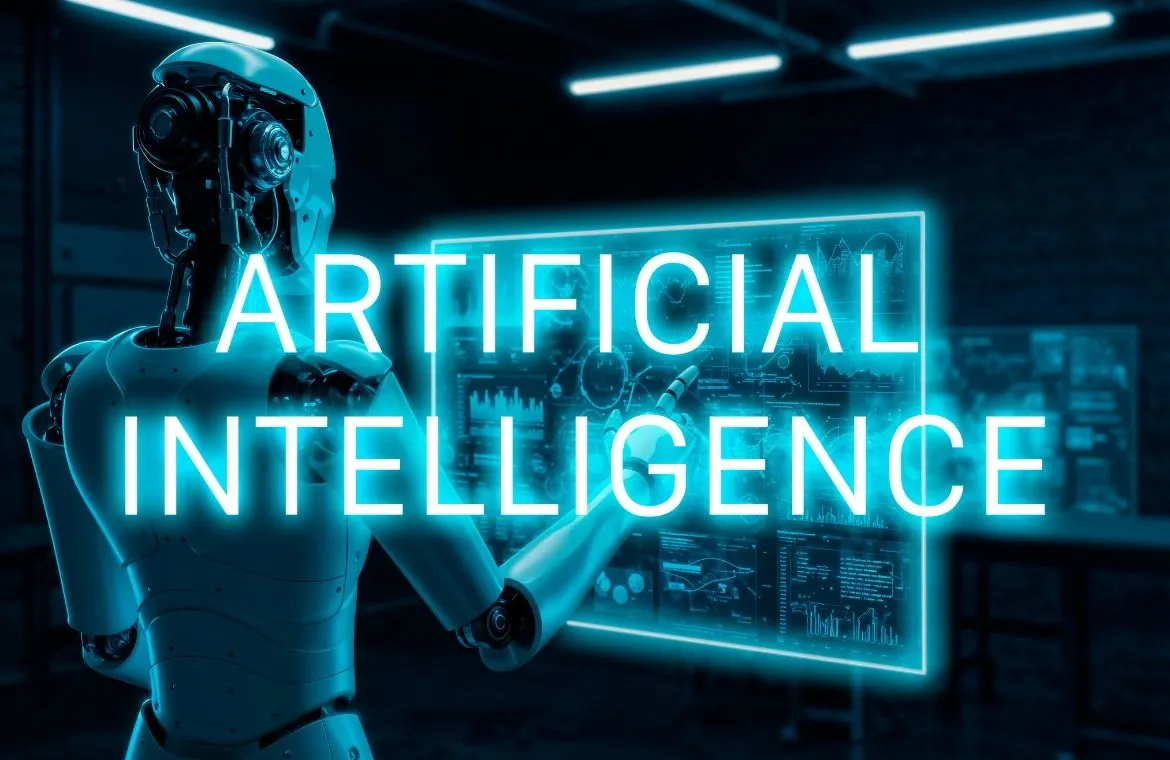How AI is reshaping Job opportunities for freshers?

Stepping into today’s AI-driven job market is like landing in a city where everyone suddenly started speaking a new language overnight. You might still recognise a few familiar words, but fluency now demands fresh vocabulary, faster thinking, and a completely different way of listening and responding.
However, for freshers, AI has changed the game midway, and the old strategies that they learnt in college can no longer guarantee a win. Now the simple moves can have bigger opportunities with a wider field area.
The impact of artificial intelligence on the jobs of the 21st century
AI continues to reshape how companies operate and what they expect from their employees. The workplace continues to change at its core. Technology revolutions have changed how people work throughout history. The Industrial Revolution brought mechanisation that changed jobs from agriculture to manufacturing. AI affects jobs in several ways.
AI's role in transforming job structures
AI is making the job market bigger and smarter. Small companies can now compete with big ones using AI tools, and freshers with the right skills can grow faster than before. It’s not just about finding a job anymore; it’s about learning how to work with AI to stay ahead.
According to a recent report by Statista, 47% labor tasks will be carried out by humans in 2025, 22% by machines, and 30% require a combination of both. Businesses anticipate a more evenly distributed market by 2030, with automation encompassing a greater percentage.
How is AI impacting the Freshers and reshaping the Job opportunities at the same time?
Freshers in India are feeling the AI wave more than anyone else. A few years ago, entry-level jobs like data entry, customer support, or basic coding were common starting points for new graduates. Today, many of these roles are being handled by AI systems that work faster, more accurately, and at a lower cost.
But this isn’t the end. AI is also creating entirely new opportunities, starting from AI tool testing to data analysis, automation design, and prompt engineering roles that didn’t exist a few years ago.
“For freshers ready to learn, adapt, and upgrade their skills, AI isn’t a threat; it’s the coach helping them play a smarter, faster game.”
| Opportunities that AI is creating for Freshers | Challenges that AI is Bringing for Freshers |
Opening Doors to New Career Paths AI has created roles that didn’t even exist a few years ago, such as AI prompt engineers, data annotation specialists, and AI product testers, giving freshers more choices than ever. | Decline in traditional entry-level roles: There is a continuous decline in entry-level jobs such as data entry, customer support, or basic coding |
Accelerated Learning Opportunities AI-powered platforms and learning assistants make it easier for freshers to pick up complex concepts quickly through simulations, real-time feedback, and personalized learning paths. | Increased competition due to global talent sourcing: AI and remote work have removed location limits. Now, freshers compete not just with local talent but also with candidates from across the globe. |
Level Playing Field Even without years of experience, freshers can compete with seasoned professionals by mastering AI tools that enhance productivity and output quality. | AI tools replacing repetitive tasks: AI now handles tasks like data entry, simple research, and customer queries, jobs that freshers used to start with. This means newcomers need to focus on reviewing AI’s work and adding human judgment. |
Global Exposure AI-related projects often involve global teams, giving freshers a chance to collaborate with experts worldwide and learn industry best practices early in their careers. | Shift in employer expectations: Companies want people who combine tech skills with creativity and problem-solving. Being adaptable, curious, and always learning is now more important than just academic achievements. |
Emerging AI Trends
AI isn't just changing existing jobs - it's creating completely new ways of working. Your career path as a recent graduate will be shaped by these emerging trends.
1. Automation and Job Redefinition
AI technology's maturity continues to redefine job roles. Research estimates that between zero and 30 percent of hours worked globally could be automated by 2030. Less than 5 percent of occupations can be fully automated, and approximately 60 percent of jobs could have at least one-third of their activities handled by AI.
2. Increased Need for AI-Related Skills
As AI becomes part of everyday work, companies in India are looking for people who can use it well. This means freshers who know AI tools, data analysis, or basic machine learning have a big advantage.
3. Moving Skill Requirements
Workplace skills are shifting dramatically, and what was once considered sufficient is now rapidly becoming outdated. Indian companies increasingly expect freshers to master advanced technologies rather than rely on basic digital skills, introducing roles that align with AI-related expertise
4. New Opportunities in AI startups and corporates
India’s AI ecosystem is booming, especially within startups. Startups like Flipkart and Meesho are hiring freshers to work on AI-driven recommendation systems that suggest products to customers based on browsing history..
5. Focus on Human-AI Collaboration
AI is no longer about replacement, as it’s about partnership. Companies like TCS are now rolling out a "Human + AI" model, where AI agents work alongside team members to boost productivity and innovation.
How can they prepare to succeed in this fast-paced world?
The workplace is rapidly shifting toward AI dominance, and professionals just need to focus on uniquely human skills while developing their technical abilities.
1. Adopt AI Literacy
AI literacy matters in every industry today. You need to understand AI basics to use these tools well in your work. Universities must prepare their graduates with AI literacy by 2025. Students should know how AI works, evaluate its output, and understand its limitations.
2. Develop Critical Thinking and Problem-Solving Skills
Critical thinking acts as a 'truth filter' with AI-generated information. Job requirements keep changing rapidly. Your skills to question assumptions and make informed judgments will set you apart from AI. LinkedIn data suggests that job skills will change by 68% by 2030.
3. Focus on Soft Skills
Technical requirements evolve, but soft skills remain irreplaceable. AI cannot replicate human communication, emotional intelligence, leadership, or empathy. People with strong soft skills get promoted a little faster than those with just technical skills.
4. Pursue AI-Related Education and Training
Many platforms help you learn AI:
- University programmes and specialised degrees
- Online courses through credible institutions and websites
- Coding bootcamps, which focus on AI applications
5. Stay Adaptable and Continuously Learn
Technology advances quickly. Learning, unlearning, and relearning help you direct uncertainty with flexibility and resilience. Teams with AI skills help companies perform 2.3 times better financially than their competitors. A growth mindset keeps you relevant in this changing job market.
Conclusion
AI's rise marks a defining moment in India's job market, especially for new graduates starting their careers. AI creates fresh opportunities while it changes or eliminates others. Nearly 300 million jobs worldwide face automation risks, yet this tech revolution needs skilled professionals in many sectors.
AI has, without doubt, created new career paths. In spite of that, some jobs face major automation threats. Roles with routine information processing, data entry, and standardised communication are at risk. Career planning now depends on identifying roles that will grow rather than just survive.
Human qualities like creativity, ethical judgment, and emotional intelligence remain AI's biggest challenge to replicate. Jobs that require physical presence, manual skills, or genuine human connection tend to be less susceptible to automation.
This period of change brings both challenges and opportunities. Adaptation takes effort, but professionals who blend tech skills with core human abilities will succeed. Talentsprint Bootcamps can serve as your alma mater for achieving career success by leveraging technological change rather than resisting it.
“Because the future belongs to those who know that human-AI teams create better results than either could achieve alone.”
Frequently Asked Questions
Q1. How is artificial intelligence transforming job roles for new graduates?
AI is automating routine and manual tasks traditionally assigned to entry-level positions, leading to a shift in job responsibilities. Fresh graduates now need to focus on higher-level tasks that require critical thinking and creativity, working alongside AI rather than competing with it.
Q2. What are the career prospects for freshers in the field of AI?
There are numerous opportunities for freshers in AI across various industries. Companies are actively seeking candidates who can work with data, develop AI models, and create automation solutions. Entry-level AI roles can serve as stepping stones to more specialised positions as you gain experience.
Q3. In what ways is AI generating new employment opportunities?
AI is creating new jobs by enhancing efficiency and productivity in organisations. This allows companies to focus on more complex tasks that require human expertise, leading to roles such as AI specialists, data analysts, and machine learning engineers.
Q4. How does AI impact the skill requirements for new job seekers?
AI is increasing the demand for skills such as critical thinking, creativity, and problem-solving. It also emphasises the importance of technical skills like data analysis and programming. Job seekers need to develop a combination of these human and technical skills to remain competitive.
Q5. What strategies can freshers adopt to thrive in an AI-dominated job market?
To succeed in an AI-driven workplace, freshers should focus on continuous learning, particularly in AI-related skills. They should also develop uniquely human capabilities like emotional intelligence and ethical reasoning. Gaining practical experience through internships or projects involving AI tools is crucial for standing out in the job market.

TalentSprint
TalentSprint is a leading deep-tech education company. It partners with esteemed academic institutions and global corporations to offer advanced learning programs in deep-tech, management, and emerging technologies. Known for its high-impact programs co-created with think tanks and experts, TalentSprint blends academic expertise with practical industry experience.



